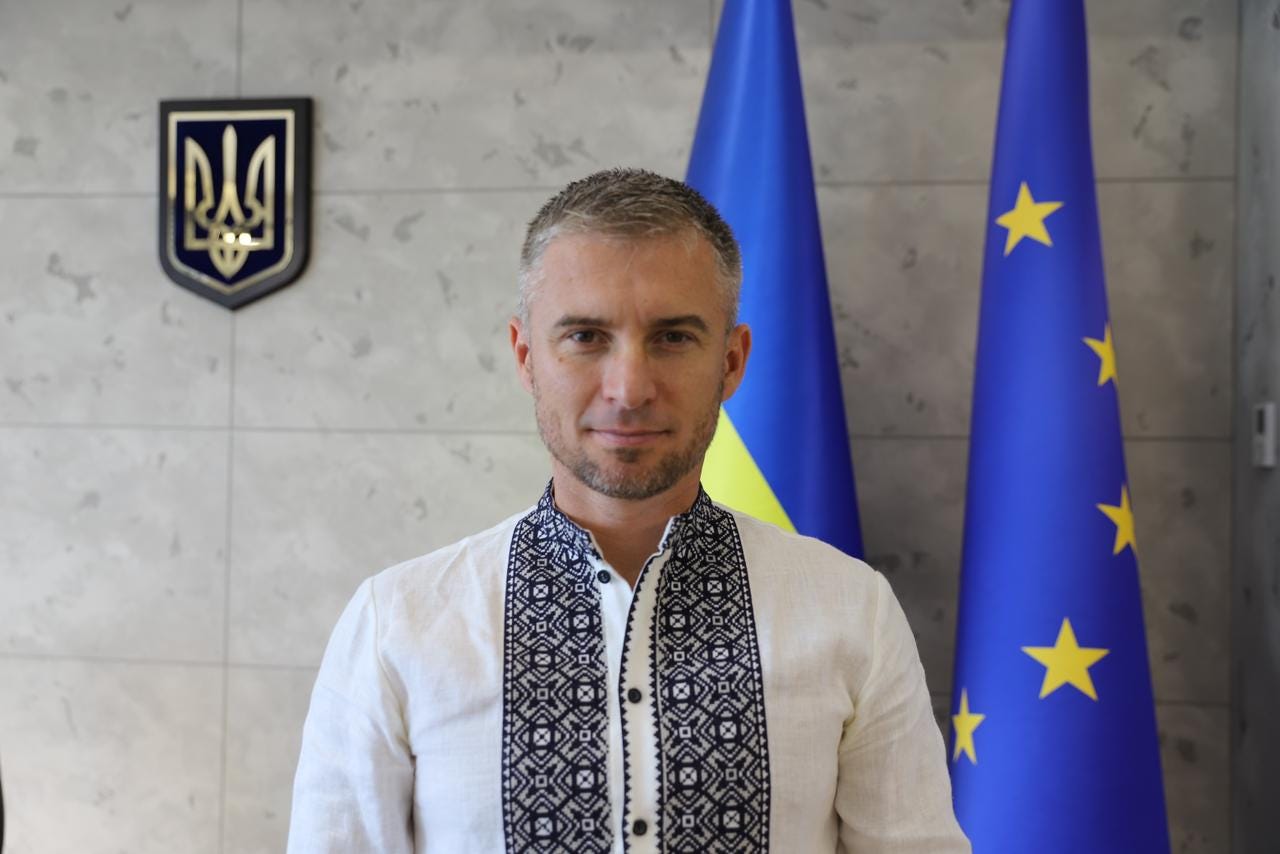Ukrainian corruption
Cynical Ukraine opponents point to it to justify their views. Meet the man doing the real work to bust it down. Meanwhile, Myroslava describes enduring the worst attacks in Kyiv since the war began.
Editor’s note: Much of the world’s press has moved onto other topics, but we’re still here. We’re developing a group of young journalists in Kyiv to tell human stories that illustrate the war at the ground level. Help us with this hard work by upgrading to a paid subscription!
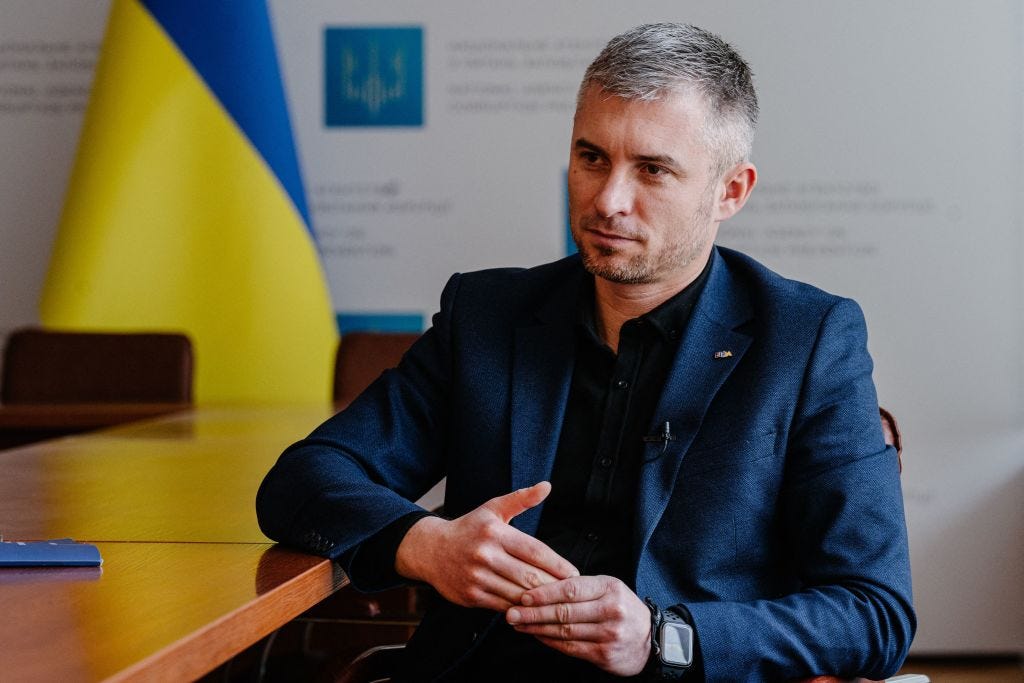
Sometimes the corruption is so clumsy, it’s comedic.
“It is so stupid,” Oleksandr Novikov shakes his silver head of hair as he breaks into a warm laugh. He is explaining a case that his agency, the National Agency for Corruption Prevention (NACP), investigated.
The case involved Oleg Lyashko, a Ukrainian MP who, in the process of declaring his assets, claimed that he had won the national lottery three times. An investigation by Novikov’s agency concluded that Lyashko was not, in fact, exceptionally lucky… but was rather attempting to hide ill-begotten gains.
Novikov continues to rattle off other farcical tales of illicit enrichment and voting fraud cases he investigated. Leaning forward in his seat and gesturing animatedly with his hands, he retells the time he went to visit a reservoir in the Luhansk region, a project that was suspected of corruption.
But upon arriving at its registered location, he found that it did not exist at all.
However lighthearted his attitude to the problem might seem, Novikov knows better than anybody how existential Ukraine’s fight against corruption is.
After all, the whole world is watching. Western aid, Ukraine’s future, the entire fate of the war – they all hinge on the issue.
The European Commission has decided to begin negotiations for Ukraine to join the EU. However, to make progress, Ukraine is still required to meet other conditions – half of which are related to tackling corruption.
Ukraine’s problem with corruption has been a favorite topic among Russian propagandists and far-right American pundits who want to criticize Kyiv. This means that every time Ukraine actually reduces corruption by announcing charges, it hands its cynical opponents a talking point – more evidence that they can use to argue that Ukraine shouldn’t get help because it is too corrupt.
And the propaganda campaign is taking a toll. Novikov said that while corrupt activity has fallen nine percent in the last five years, the perceived level of corruption among the Ukrainian public is four times higher than its actual level.
Last year story after story of corrupt Ukrainian officials hit the headlines both at home and abroad.
One of the biggest came when Oleksii Reznikov, head of the Defence Ministry, was removed in September 2023. That prompted a closer look at the agency, and resulted in the removal of another official in late December – he had allegedly stolen $40 million by buying artillery shells at an inflated price. Last summer, two top economic officials were accused of misappropriating more than $1.6 million which had been intended for humanitarian aid.
Novikov says that rather than showing Ukraine has an insurmountable problem, the legal actions actually show the system is working.
“If corruption was hidden, we wouldn’t have these cases,” he argued. “We are building integrity.”
Anti-corruption work in Ukraine has become especially important at a time when Ukraine is in desperate need of military aid from their allies. Novikov listed the anti-corruption measures that are already in place: a procurement system for state contracts, commended by the World Bank; a register that ensures public officials cannot use state funds; as well as an independent auditor, an Anti-Corruption Court and a National Anti-Corruption Bureau.
But bringing corrupt officials to justice is only part of the solution. Fundamentally it will involve changing the Soviet-era attitude of greasing the wheels by slipping money, or taking a little off the top for one’s self.
“Punishment is not an answer to the issue of building integrity,” Novikov said. “We need to change the culture, we need to change the rules.”
Every corruption fighter is tested at one point or another.
While studying law at the Academy of the Prosecutor General, Novikov and his class were told that they would get a six month internship after graduating. When the academy suddenly canceled the internship program, Novikov organized students to sign a letter protesting the change.
The head of the HR department at the Prosecutor General’s Office offered him – and him alone – an internship in the Kyiv region, a significant step up from the internship he had expected to get in Sumy, his native city. The catch: he would have to abandon the protest.
Novikov smiles and laughs. They completely misunderstood his intentions – and why students were up in arms.
Novikov said it was "his first act in the interest of public good," and refused to concede. The Prosecutor General’s Office ultimately caved and reinstated the rule.
The following year, in 2004, a historical event occurred that would change Ukraine forever. The Orange Revolution was sparked by an election run-off between Viktor Yushchenko and Viktor Yanukovych, a Russia-backed candidate who had received funding from Russia and even had Putin involved in his election campaign.
The popular demonstrations were a cry of desperation from the people to end corruption, restore democracy, and remove Russian influence.
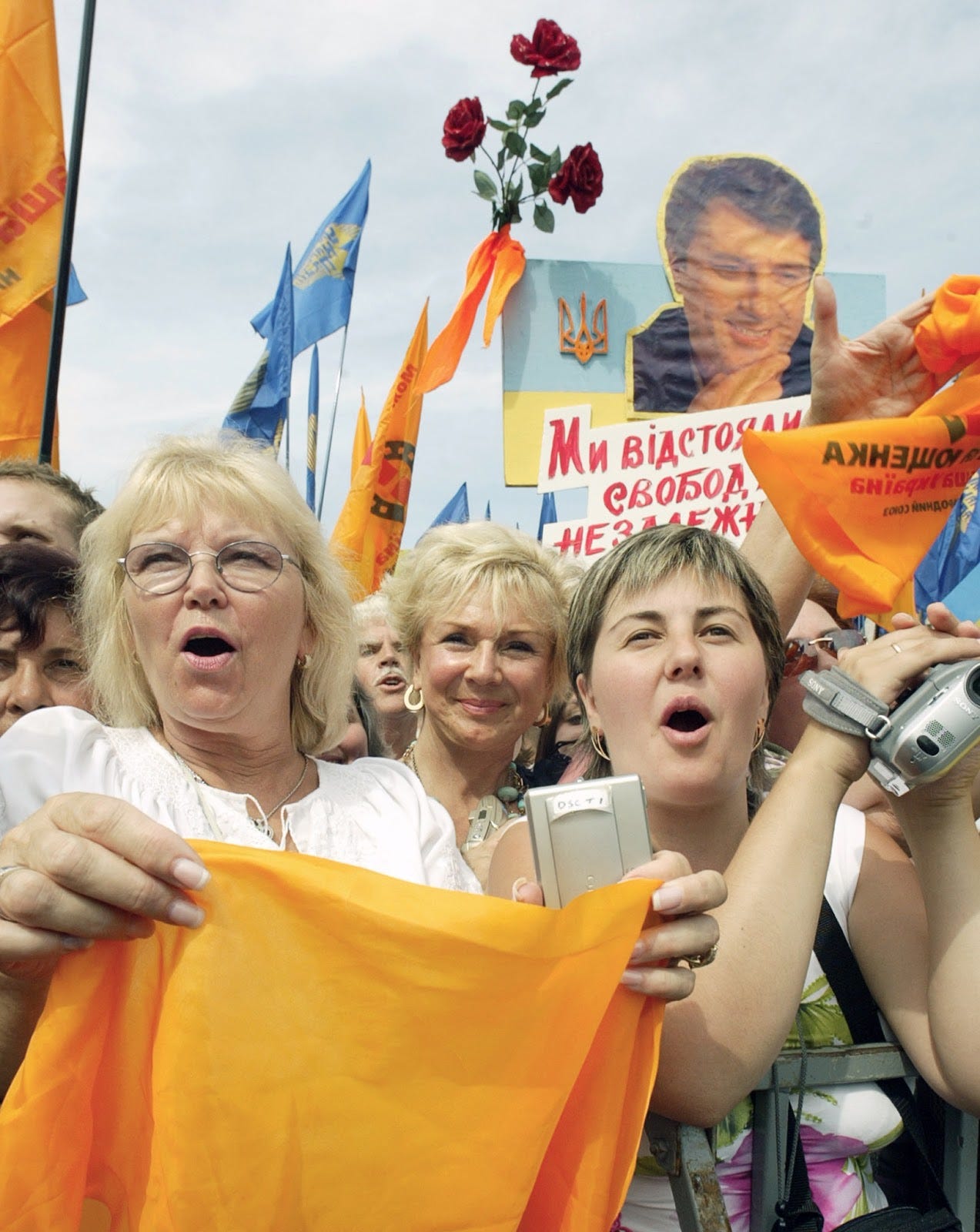
“I thought that if revolution did not change the situation, I would leave my beloved country,” he said.
The Orange Revolution did bring some reforms but it did not rid Ukraine of corruption.
Ten years later, Ukrainians were back protesting corruption again, bringing about what is now known as The Revolution of Dignity.
This time the protests were met with a Russian-backed crackdown and it was deadly, taking over a hundred lives. Novikov attended the protest and said his wife even prepared Molotov cocktails.
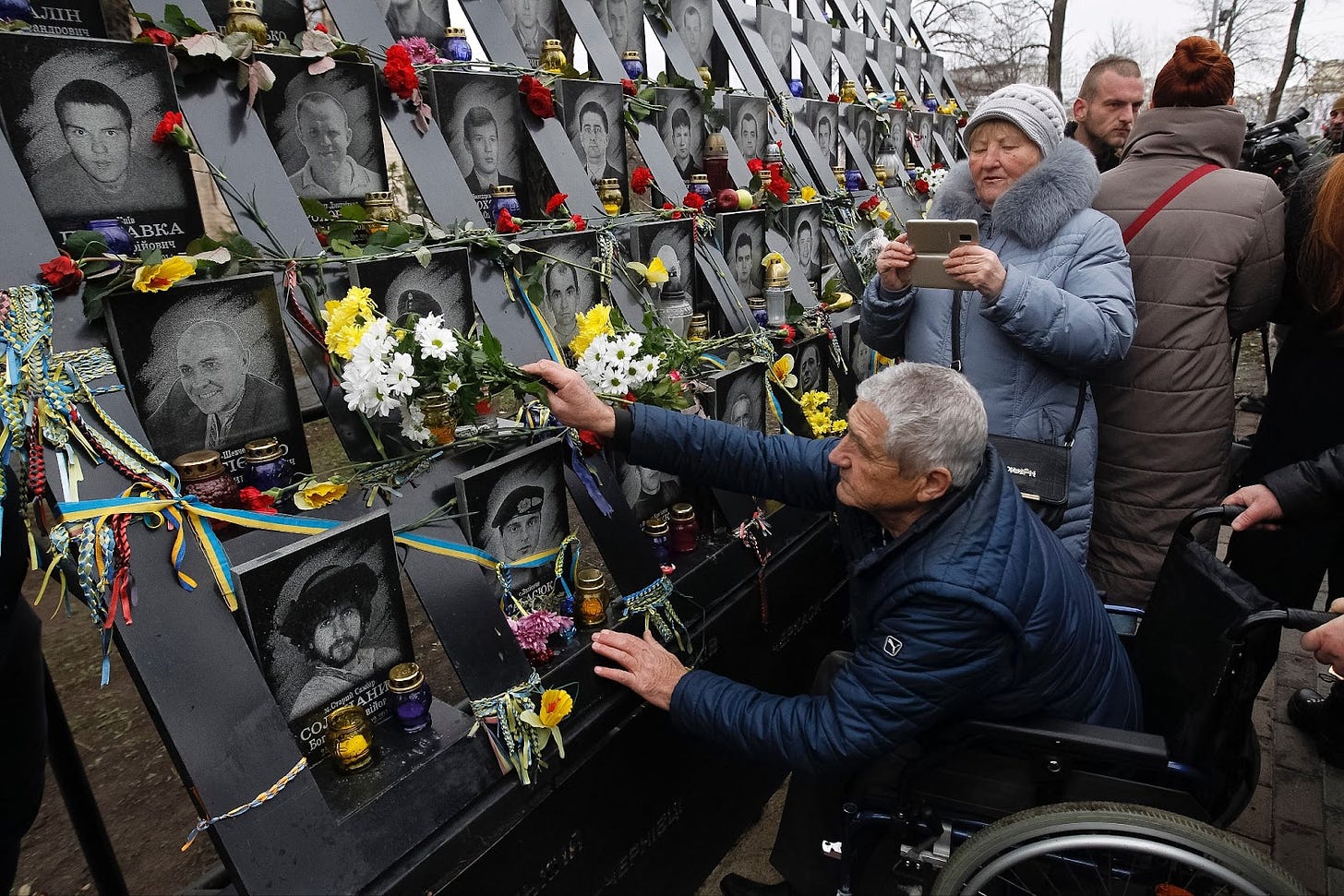
Yanukovych’s government resigned and many of them, including Yanukovych himself, fled Ukraine for Russia.
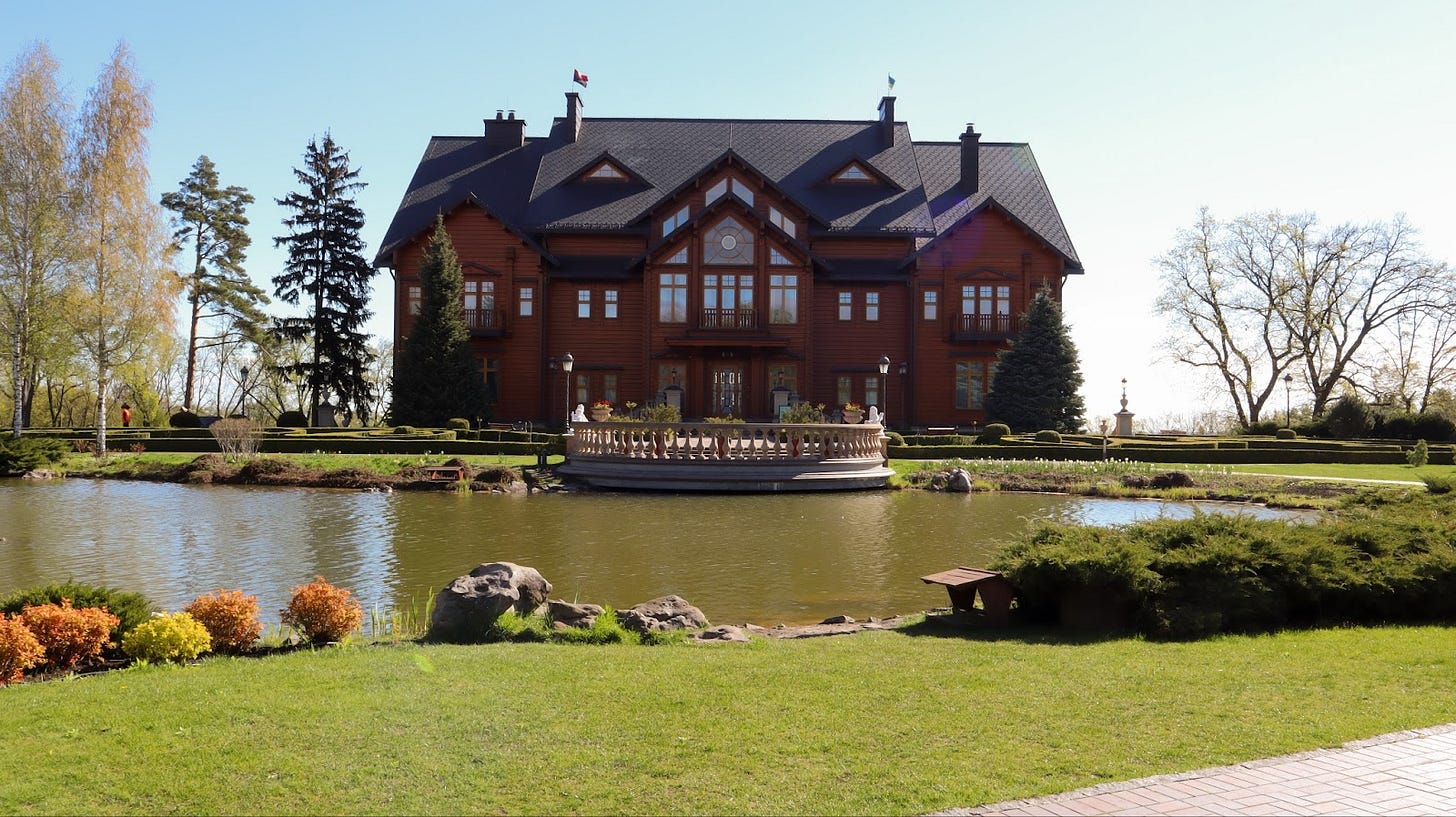
Novikov, laughing again, even remembers a video of Prosecutor General Psheynka crashing through the airport in order to get on his flight to Russia.
Today the parallels are not lost on anybody that knows their history: corruption and Russia hold Ukraine back from Europe once again.
Novikov’s agency focuses on corruption prevention, which he has done through increasing transparency. Under his leadership the NACP has developed online portals that allow the public to report suspected corruption in Ukraine.
Ukraine is one of only two countries, the other being the US, that use lifestyle monitoring practices, which allow the public to report assets owned by government officials which they suspect to have been obtained through illicit enrichment.
These tools have led to dozens of cases and ten legal proceedings convicting government officials of illicit enrichment.
It might seem that Novikov and the NACP is burdened with an impossible task – trying to change a system it is a part of. However, he said that no one will be able to hold him back from his goal of radically shifting the culture to prohibit corruption.
Literally, no one can.
“Neither the President, nor the government, nor Parliament can remove me from this position,” he said with a proud smile.
We’re going to be using more paywalls this year: to find out the news that is drawing our attention today, and Myroslava’s tale of how she endured the worst barrage in Kyiv since the invasion began (while sick!), subscribe and read on!
Keep reading with a 7-day free trial
Subscribe to The Counteroffensive with Tim Mak to keep reading this post and get 7 days of free access to the full post archives.




